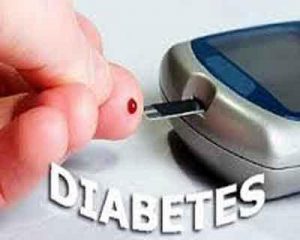- Home
- Editorial
- News
- Practice Guidelines
- Anesthesiology Guidelines
- Cancer Guidelines
- Cardiac Sciences Guidelines
- Critical Care Guidelines
- Dentistry Guidelines
- Dermatology Guidelines
- Diabetes and Endo Guidelines
- Diagnostics Guidelines
- ENT Guidelines
- Featured Practice Guidelines
- Gastroenterology Guidelines
- Geriatrics Guidelines
- Medicine Guidelines
- Nephrology Guidelines
- Neurosciences Guidelines
- Obs and Gynae Guidelines
- Ophthalmology Guidelines
- Orthopaedics Guidelines
- Paediatrics Guidelines
- Psychiatry Guidelines
- Pulmonology Guidelines
- Radiology Guidelines
- Surgery Guidelines
- Urology Guidelines
Long-term testosterone treatment may lead to diabetes remission in hypogonadal men

22% of men with type 2 diabetes mellitus (T2DM) and hypogonadism who received long-term testosterone treatment had diabetes remission, reveals a study presented at the American Diabetes Association 78th Scientific Sessions in Florida. This was a small registry study that was only designed to assess a new preparation of the hormone.
"This registry was not designed to study the effects of testosterone on type 2 diabetes," said Saad. "A remission of T2D with testosterone has not been described in the literature. It was completely unexpected."
The results were presented by Farid Saad, from Gulf Medical University School of Medicine in Berlin. For the study, Saad and colleagues reviewed data from 400 men with hypogonadism, 133 of whom also had type 2 diabetes mellitus . All the men received testosterone injections for 12 weeks and were also prescribed metformin before the study, with five put on an insulin regimen.
Read Also: Bariatric Surgery reverses hypogonadism, restores sex drive
The participants were followed up twice a year to measure insulin resistance as well as fasting insulin levels. In total, the participants were followed for a mean of 6.9 years.
Key Findings:
- A total of 16 (12%) men with T2D were in diabetes remission at the final measurement. Their HbA1c level of 8.3% at the beginning of the study had fallen to 5.7%, and insulin resistance, triglycerides, and blood sugar levels all decreased.
- On average, participants who achieved remission discontinued their diabetes medication after 74.8 months.
- One patient who discontinued testosterone following a diagnosis of prostate cancer subsequently developed new-onset T2D. But upon restarting testosterone therapy the participant experienced type 2 diabetes remission two years afterward.
- After an additional 6 months of follow-up, until mid-2018, 15 more patients attained diabetes mellitus remission, for a total of 31 patients (22%).
- In a control group of hypogonadal patients who did not receive testosterone treatment, mortality was shown to increase compared with those taking testosterone.
"This mortality is usually of a cardiovascular nature, which is not the case in the treated patients. So, in our experience, everything that was said about cardiovascular risk increased by testosterone treatment is nonsense," added Saad.

Disclaimer: This site is primarily intended for healthcare professionals. Any content/information on this website does not replace the advice of medical and/or health professionals and should not be construed as medical/diagnostic advice/endorsement or prescription. Use of this site is subject to our terms of use, privacy policy, advertisement policy. © 2020 Minerva Medical Treatment Pvt Ltd